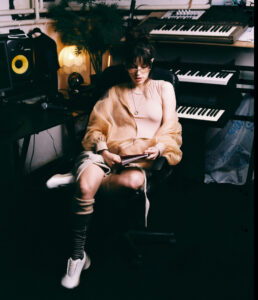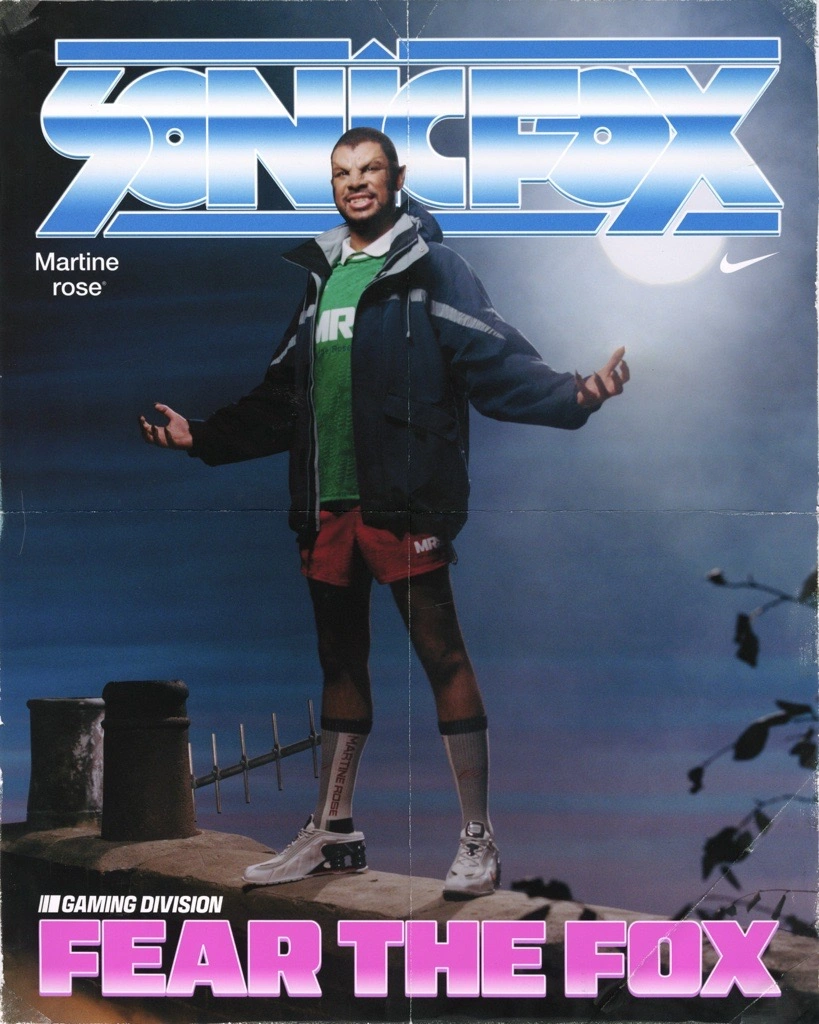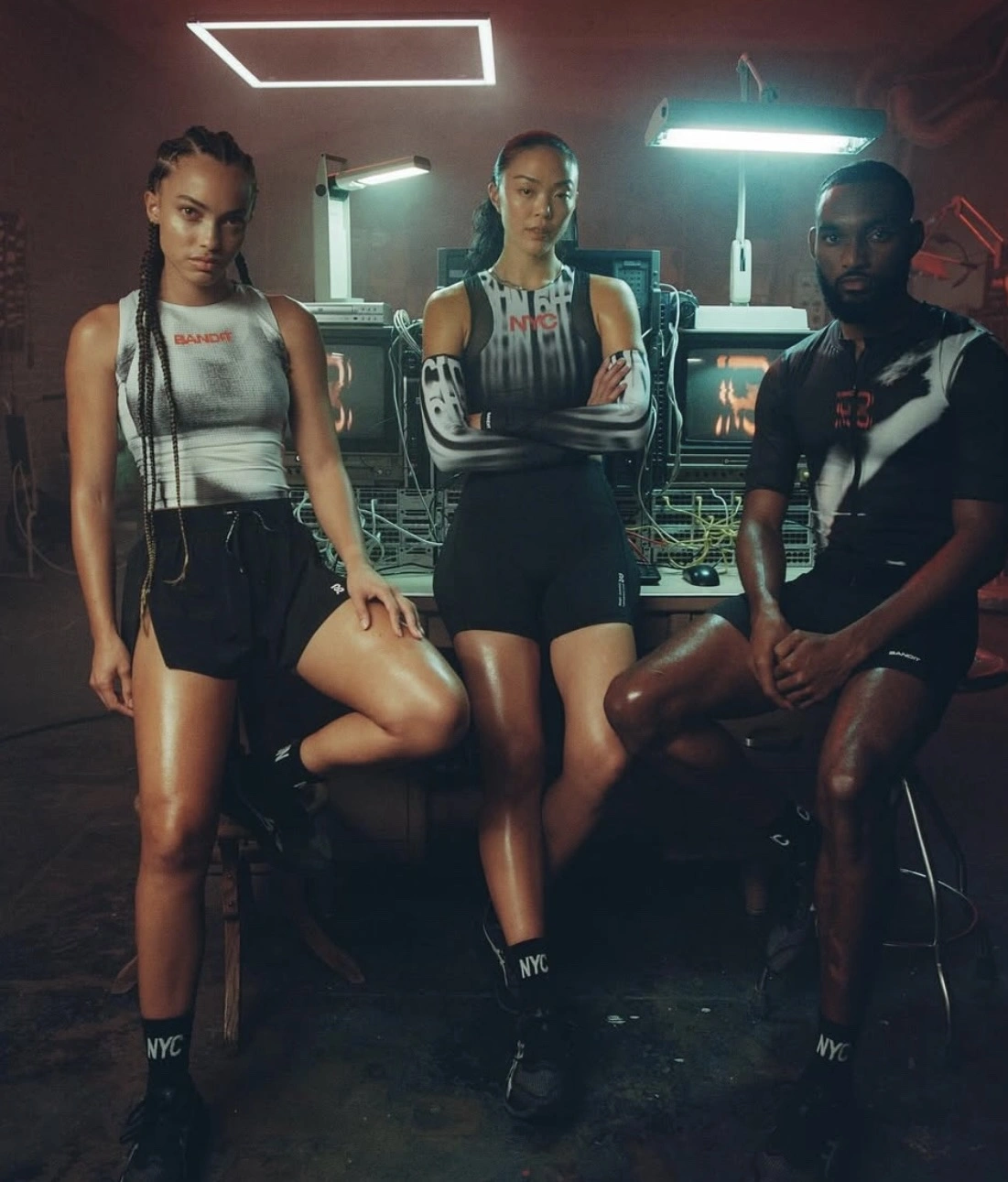The Breath Before the Note: An Artist on the Edge of Arrival
When Marylou Mayniel, known to listeners as Oklou, released her debut album Choke Enough in February 2025, she did so with a quiet tremor of uncertainty. For two and a half years, the French musician had poured herself into its creation—tweaking melodies, doubting progress, circling themes of fragility and provocation. By the time the record was complete, the work had eclipsed its maker. “If I’m being honest, I wasn’t very confident,” she admitted. “At the end of making the album, I felt like I needed more time.”
But time, as Choke Enough reveals, isn’t something Mayniel takes for granted. The album pulses with suspended moments—sound stretched like elastic, vocal loops teetering on the edge of collapse, emotional states dilated and reformed through digital haze. It is an audacious and bruised debut that feels less like a product and more like a confession—an attempt to translate sensation into resonance, confusion into clarity.
The Texture of Sound: From NUXXE to Now
Though Choke Enough marked her formal debut, Oklou has long been a significant figure in Europe’s underground pop avant-garde. Her early collaborations with Casey MQ, the dreamlike 2017 EP For The Beasts, and 2020’s Galore mixtape hinted at an artist invested in experimentation without forsaking form. Her affiliations with the NUXXE collective—which counted Shygirl and Sega Bodega among its members—positioned her at the frontier of genreless expression, meshing classical instrumentation with post-club electronics.
Oklou’s music has always courted contradiction: synthetic yet warm, unstructured yet narratively cohesive, delicate yet confrontational. In many ways, her trajectory mirrors the SoundCloud epoch, a time when the platform’s lawlessness allowed female and nonbinary producers to sketch unpolished visions without commercial pressures. “SoundCloud taught me how to play with identity through sound,” she’s said in past interviews. It also introduced her to the sonic palette that would become foundational to her craft: ambient swells, aqueous synths, and distortion layered with emotional immediacy.
Choke Enough: Anatomy of an Emotional Landscape
Released to critical acclaim, Choke Enough functions as both a culmination and a reinvention. It’s an album preoccupied with emotional thresholds—the spaces where desire meets discomfort, where fantasy curdles into reality. As Mayniel described last fall, the record explores “what situations are we ready to put ourselves into in order to provoke sensations and drama — in order to feel alive.”
Tracks like “Gone, No Answer” and “Skin Riddle” establish this thematic through-line. The former floats on processed vocals and melancholic piano, while the latter melds sensual percussion with ghostly harmonies. Each track feels like a sonic wound—open, raw, and unafraid to fester. There’s a lingering, almost architectural sadness embedded within the compositions, structured less around traditional song arcs and more like abstract emotional blueprints.
The production throughout is equally fearless. Mayniel wields silence as deftly as she does texture, pulling back instrumentation at key moments to highlight breath, rustle, or the quiet shake of a looped sample. Her voice—often manipulated or buried—emerges as both guide and ghost, inviting listeners into interior worlds populated by longing, hesitation, and flickers of confrontation.
From Musician to Mother: The Next Composition
As if birthing an album wasn’t enough, Mayniel is also preparing to give birth to her first child in June. Touring globally while navigating pregnancy is no small feat, and yet she speaks about this dual transition—artist to mother, soundscape to human life—with a kind of awe.
“I’ve been thinking a lot about how I’ll keep my child curious,” she says. “As a mother with my own expectations for my life, I’m excited to try not to project that too much onto this future human.”
There’s a poetic symmetry between her music and motherhood. Both involve risk, vulnerability, and creation. Choke Enough, in many ways, documents the push-pull of identity in flux. Now, that flux extends beyond the self and into the realm of care, responsibility, and legacy.
Pregnancy becomes, for Oklou, another composition: one she cannot wholly orchestrate, one that evolves with or without her direction. Her music, which has always been about unearthing the invisible, now takes on corporeal stakes. Her body isn’t just the source of art—it’s the vessel of life.
The FKA twigs Connection: Dialogue Across Frequencies
In a compelling convergence of influences and trajectories, Oklou recently sat down with FKA twigs, another artist deeply rooted in hybridized sound and visceral performance. Twigs, a longtime inspiration for Mayniel, echoed the deep kinship between their musical approaches.
“We both make things that aren’t easy to categorize,” twigs noted. “There’s pain in it, but also beauty. A sense of being unmoored.”
Their conversation drifted from SoundCloud nostalgia to the surreal experience of carrying life inside one’s body. Oklou described pregnancy as “a distortion pedal on reality,” a constant feedback loop of joy, fear, and reorientation.
Most thrilling, however, was the duo’s exclusive revelation of a collaborative track in the works—an as-yet-unnamed piece exploring dissonance, echo, and the theme of inheritance. According to twigs, “It’s like a lullaby for a version of yourself you’ve never met.”
Such a pairing feels inevitable: both artists push boundaries while remaining tethered to emotional authenticity. Together, they embody a new vanguard of pop—one unconcerned with hooks and more invested in how a song makes you feel before you even understand it.
The Critical Chorus: Acclaim and Artistic Recognition
Reception to Choke Enough has affirmed Oklou’s position as a generational voice in experimental pop. Pitchfork praised the record as “expressive” and “dynamic,” noting how it signals her evolution from underground curiosity to full-fledged auteur. Stereogum highlighted her ability to balance “playfulness with looming unease,” while Paste dubbed her “a future-facing steward of gentle pop.”
These reviews, while flattering, also underscore the challenge Mayniel faces: to remain true to her own blurred aesthetic even as institutions attempt to define her. One senses she’ll be cautious with the acclaim—grateful, but never beholden. After all, her music resists linear success. It lives in the murky space between acclaim and anxiety, release and reflection.
Future Frequencies: What Comes After Choke Enough
If Choke Enough was a reckoning, then its aftermath is a rebalancing. With a child on the way and a new creative partnership blooming with twigs, Oklou enters a phase of multiplicity. No longer solely an artist, she becomes a mother, a collaborator, and perhaps most importantly, a vessel for futures—both sonic and human.
Her recent live shows reflect this metamorphosis. Performed amid immersive visuals and cavernous sound design, they eschew traditional sets for sensory storytelling. Audience members often describe feeling “transported” or “dissolved”—evidence that Mayniel continues to treat the stage not as a platform but as a portal.
She’s also expressed interest in scoring films, particularly ones that deal with intimacy, isolation, and the unseen. Her ambient sensibilities would thrive in that medium, expanding her already cinematic instincts into narrative domains.
Impression
In Choke Enough, Marylou Mayniel doesn’t merely debut. She offers an invitation to dissolve, to let sound reshape how we understand vulnerability, craving, and connection. Her music is not for casual listening—it asks for your full sensory attention, and rewards it with something unnameable but indelible.
As Oklou stands at the intersection of two births—album and child—she becomes emblematic of an artist who refuses containment. She isn’t just crafting music; she’s cultivating atmospheres, rearranging molecules. And as she navigates this complex new era, one thing becomes clear: she’s not simply arriving. She’s becoming.
No comments yet.









